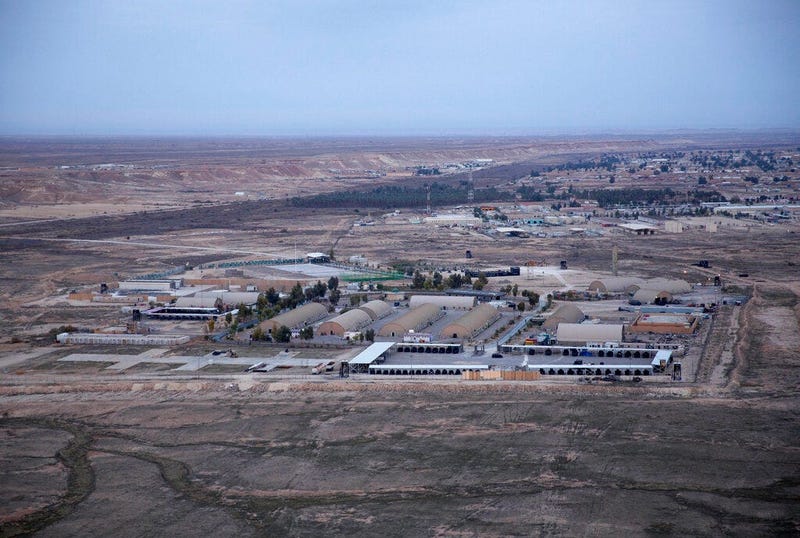
The number of U.S. service members injured in the retaliatory Iranian missile strike on Jan. 8 has increased to 50 — 16 additional cases since the Pentagon provided updates Friday.
Initially following the Jan. 8 Iranian missile strike on installations housing U.S. personnel in Iraq, the president and military officials communicated that no service members had been harmed.
“I’m pleased to inform you the American people should be extremely grateful and happy. No Americans were harmed in last night’s attack by the Iranian regime,” President Donald Trump said the day of the attack.
Trump says he didn't mention injuries of US troops because they weren't 'serious'
During the following weeks, however, updates of the situation in Iraq revealed that 8 U.S. service members were being treated for concussive symptoms. Then 11 more injuries were reported. On Friday, the Pentagon announced that 34 service members had been diagnosed with concussions or traumatic brain injuries (TBIs).
34 US troops diagnosed with concussions, TBIs from Iran missile strike, Pentagon says
That number has now increased to 50.
"As of today, 50 U.S. service members have been diagnosed with TBI," Pentagon spokesman Lt. Col. Thomas Campbell said in a statement.
Of those 50 service members, 31 were treated in Iraq and have since returned to duty — including 15 of the 16 most recently reported injuries, the statement added. The last of those newest injuries was transported to Germany for further evaluation and treatment bringing the total number of service members transported to Landstuhl Regional Medical Center to 18.
Pentagon officials previously communicated that the number of total injuries to U.S. service members could increase due to the delay in symptoms that often characterizes concussive injuries.
"Given the nature of injuries already noted, it is possible additional injuries may be identified in the future," spokesman for U.S. Central Command Capt. Bill Urban said in a statement on Jan. 17.
When Trump was asked by CBS News White House correspondent Weijia Jiang why he stated that no Americans were hurt in the retaliatory attack, Trump said he heard they had "headaches" and didn't "consider them serious injuries relative to other injuries I've seen."
The Veterans of Foreign Wars has since released a statement saying they expect an apology from the president regarding these statements.
The VFW wants Trump to apologize for what he said about TBI injuries
"TBI is a serious injury and one that cannot be taken lightly," VFW National Commander William Schmitz said in a statement released Friday in light of the updated information on the total number of injuries. "TBI is known to cause depression, memory loss, severe headaches, dizziness, and fatigue — all injuries that come with both short- and long-term effects."
According to the Department of Defense, 375,000 incidents of TBI occurred in the military between 2000 and 2018. Veterans suffering from TBIs experience "poorer long-term outcomes" than those with no TBIs including cases of post-traumatic stress disorder, depression, and recurrent symptoms with no known root cause, according to the National Center for Biotechnology Information.
In response to the lack of clarity in the reporting of these injuries after the Iranian missile attack, Secretary of Defense Mark Esper has called for a review of the processes in place used to track and report injuries.
DoD reviews injury tracking protocols following Iran missile attack
"This morning, the secretary directed the acting undersecretary for personnel and readiness, Matt Donovan, to begin working with the Joint Staff to review our processes for tracking and reporting injuries, wounded in action and casualties attributed to injuries," said Assistant to the Secretary of Defense Jonathan Hoffman. "The goal is to be as transparent, accurate and to provide the American people and our service members with the best information about the tremendous sacrifices our warfighters make. We will have an update on this review in the future."
—
